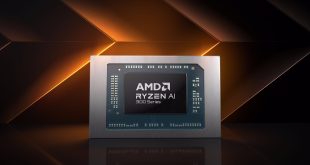Intel Corp. has been particularly tight-lipped about its roadmap concerning microprocessors to be made using 10nm fabrication process. However, on Friday the company said that development of the 10nm technology is progressing well and it will share more information about products it plans to produce using the process later this year.
“The 10nm development is progressing very well,” said Renee James, president of Intel, during a Q&A session with stockholders at the company’s annual meeting. “You will start to see start-up cost in the second half of the year on 10nm. We will talk about the timing of [10nm] later this year – the early part of next year about when that will happen.
Intel has not disclosed almost anything regarding its 10nm manufacturing process so far. The only thing that is known about Intel's 10nm fabrication tech is that the chip giant wants to further increase transistor density and reduce per transistor cost, something that many contract makers of semiconductors have failed to do with their 14nm/16nm FinFET processes. Unfortunately, the most recent reports about Intel’s 10nm chips and production of microprocessors using the node contradicted each other.
In April, it was reported that Intel postponed purchase of equipment needed to start mass production of chips at fab 28 in Kiryat Gat, Israel, from March to December. The purchase of the equipment is a part of a $6 billion upgrade plan for fab 28, which is crucial for Intel. The delay could potentially set back volume production of chips made using 10nm fabrication process.
In May, a leaked slide from Intel’s roadmap revealed the company’s plans to start commercial shipments of its “Cannonlake” processors for mobile devices in mid-2016, which means that production should begin at least three months before commercial shipments (i.e., early in 2016).
At present Intel Intel is setting up a pilot line for 10nm production in D1X development fab in Hillsboro, Oregon. The line will be operational shortly from now and will allow Intel to learn maximum amount of information about its new process technology and designs (i.e., “Cannonlake”, “Knights Hill”, etc.). Once Intel learns enough about its tech and products, it can start to transfer the technology to different fabs (i.e., fab 28 in case of 10nm), a process called Copy Exactly. The “Copy Exactly” methodology requires matching equipment configuration, chemical purity and a lot of other things. Intel does not start the CE process before manufacturing technology hits multiple targets, such as yield, performance and other. The parameters at all factories are then monitored and adjusted on-the-fly in a bid to improve yields, performance characteristics, etc. simultaneously at all Intel's fabs across the globe.
Process technology development and finalization take a long time, just like the Copy Exactly process. If Intel moves in new equipment to fab 28 only in late 2015, it will not be able to mass produce 10nm chips in early Q2 2016.
![]()
It is highly likely that Intel will reveal more details about its 10nm process technology at plans at the upcoming Intel Developer Forum trade-show in mid-August.
Discuss on our Facebook page, HERE.
KitGuru Says: If Intel is ready to talk about its 10nm manufacturing technology, it generally means that the chip giant is satisfied with its fabrication process and is confident that products made using it will hit all necessary parameters on time.
 KitGuru KitGuru.net – Tech News | Hardware News | Hardware Reviews | IOS | Mobile | Gaming | Graphics Cards
KitGuru KitGuru.net – Tech News | Hardware News | Hardware Reviews | IOS | Mobile | Gaming | Graphics Cards


